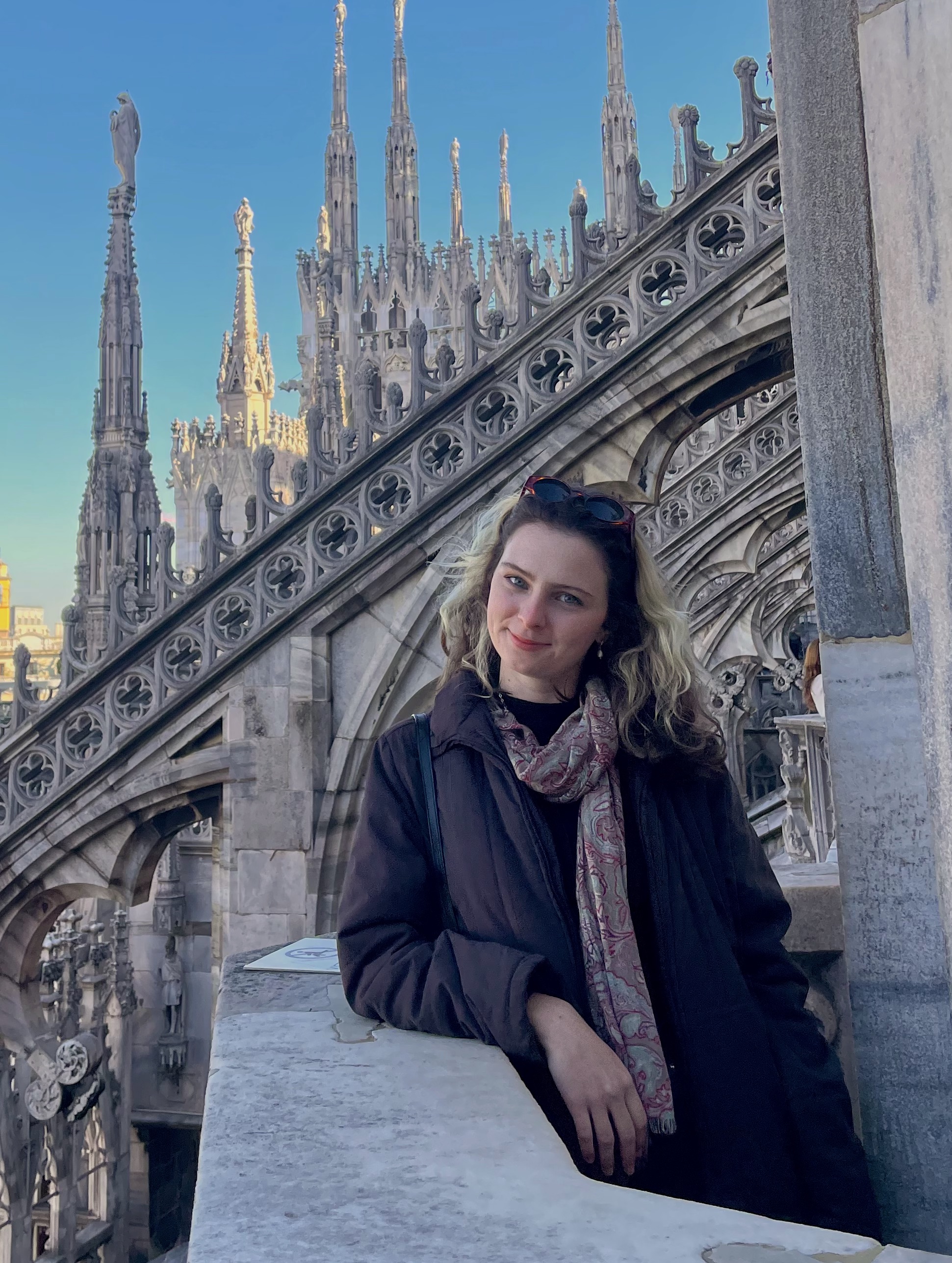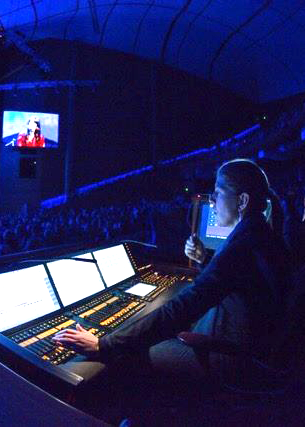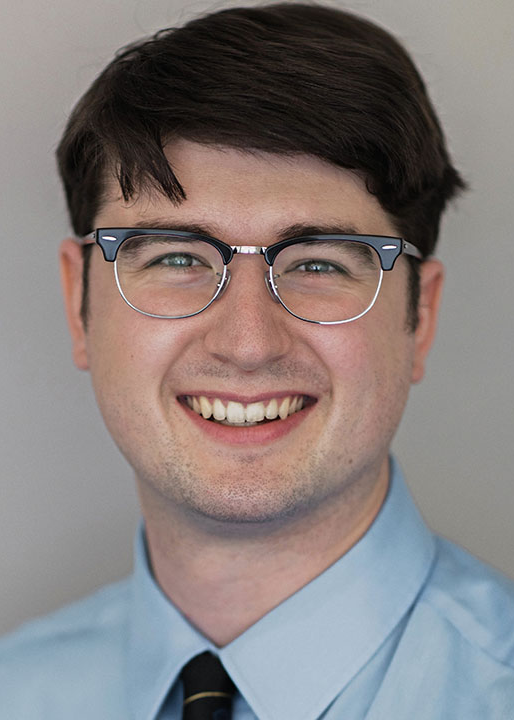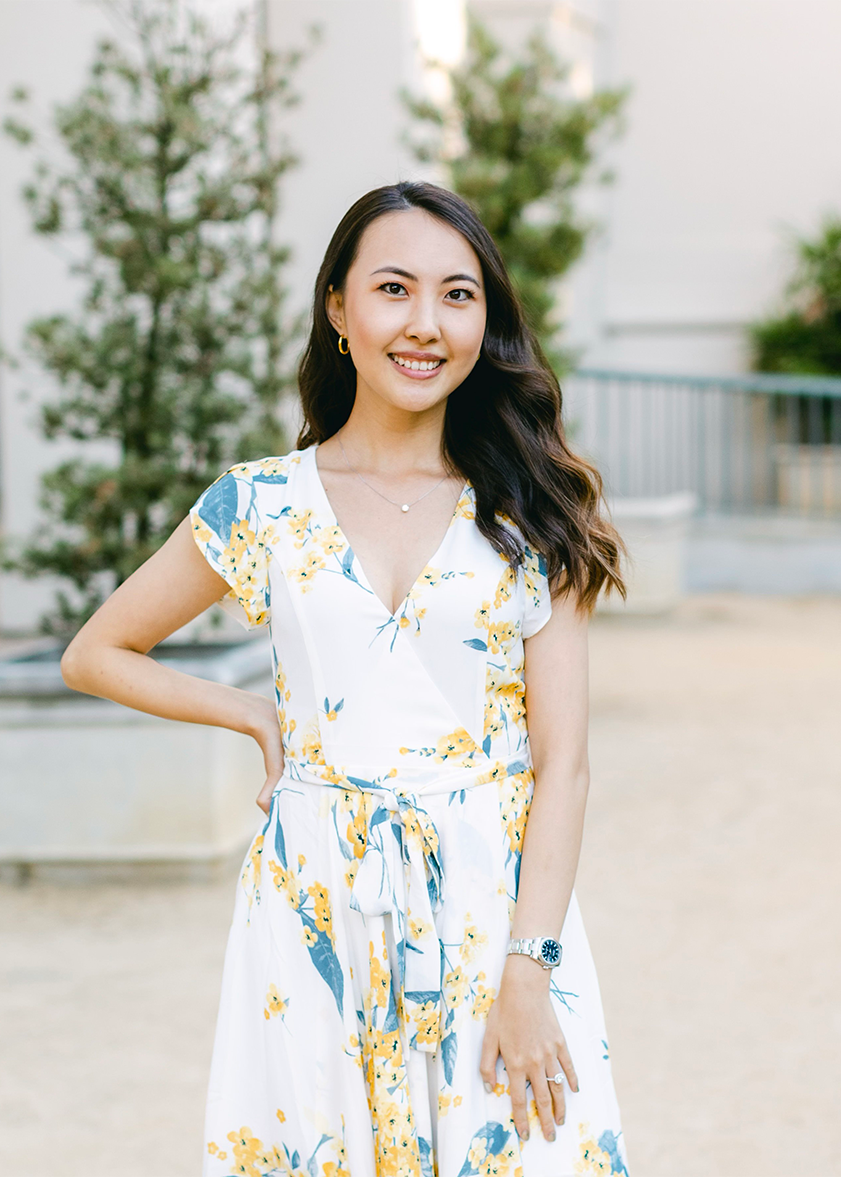Kelly O’Keefe

Why did you choose your program at UBC and what did you enjoy most about it?
I kind of fell into Political Science and Spanish — they were the subjects I most enjoyed. I like to read literature as well as theory and had already taken Spanish in high school. As I progressed through both programs I learned more about how these subjects are connected — an awareness that I believe is important to carry into personal and professional life. From the Spanish program I was hoping to continue improving my language skills and I was happy to find that as I advanced, more literature was included in the curriculum.
While it has been a few years since I graduated, having a basic understanding of Spanish (now that I live and work in Spain) has been very useful and I can tell my language skills are improving each day! Having a Spanish Minor has helped me feel more confident while travelling and is a large part of why I looked for opportunities to take my career abroad, even if just for a short while.
In terms of hard skills, being able to understand and translate with and for my students has made classroom management and teaching easier. It also helps me talk with teachers in other departments.
Soft skills I learned in my degree like asking for clarification and having patience with myself and other language learners have also come in handy. I definitely relate to my students when they feel frustrated or cannot understand; I still feel that way speaking in Spanish sometimes.
What were some of your most meaningful experiences at UBC?
For me the most meaningful experiences at the Department of French, Hispanic and Italian Studies were getting to know my classmates and professors! Thank you to all the professors who helped me along the way– especially Brianne Orr Alvarez who made ArtsOne such a formative experience for me, Maria Carbonetti who taught at least half of my grammar courses, and Tamara Mitchell who taught an amazing literature class despite distance learning and helped me apply to the North American Language and Culture Program where I am currently employed.
What choices did you make at UBC that contributed to your career success / journey?
Many UBC experiences that contributed to my career journey. In my final year I worked in the Office of Research Services through the Work Learn program which gave me the work experience I needed to qualify for my first job. I would highly recommend making Work Learn applications a priority. I also worked as a teaching assistant for POLI 101 which gave me experience in the classroom setting that has been useful while working in schools in Spain. Finally, I studied abroad in Barcelona through Go Global which inspired me to continue looking for opportunities to live abroad.
What was your first job after graduation and what other jobs did you have before your current position?
My first job after graduation (and my only job before this) was as a Talent on Demand employee on the Administrative Resource Team at the Provincial Health Services Authority (PHSA). I worked at an internal temporary employment team, but was lucky to find a great team with an ongoing assignment that lasted for nine months. I worked as a receptionist for the Office Management Team which involved going between PHSA sites, taking calls, answering emails, and coordinating meeting room schedules. It gave me a behind-the-scenes look into and experience in the administrative sector within government agencies. A large part of my role was helping the general public navigate different BC programs, referring people to anything from housing programs to regional health authorities to city water safety departments.
Is your current career path as you originally intended? What challenges did you face in launching your career?
For me, this year is more of a side quest for language learning and adventure — I don’t see myself being a teacher in the long term. I am very much at the start of my career and I am excited to see where it goes. Maybe in a few more years I will come back and do this program again, as you can work for up to five years as an Auxiliar de Conversacion.
In terms of launching my career, I wasn’t sure what I wanted to pursue so I applied to various jobs after graduating. It did take a while — I probably applied to 30 over the course of a month before I started hearing back. Be persistent and don’t be too hard on yourself!
What do you like about your current job and what do you find challenging? How does it relate to your degree?
I currently work as a Language Assistant in Spain for the North American Language and Culture Program run by the Education Office of the Embassy of Spain in the United States, the Ministry of Education of Spain and the different regional education authorities. This program creates opportunities for cross-cultural exchange and language learning; teachers from the USA and Canada work at different schools in Spain and Spanish teachers work in schools across North America.
I work 12 hours a week at my Instituto, or public secondary school, where I plan and teach lessons and activities for my students through the English Department. We learn about different holidays, cultural differences, or practice having conversations about useful themes that may not be covered in their textbooks. My job is to get them talking, so I get to have more fun than the teachers that have to focus on grammar! The job varies between schools and age levels; some assistants will work with Science or Math teachers to introduce other topics in English. Those who work with younger kids may be asked to focus on games or simpler activities.
I really like interacting with my students, especially the younger ones who have lots of questions about me and are excited when it is my turn to teach. They were very curious about my life growing up in Hawaii, why I chose to go to university in Canada, and how I ended up on the other side of the world in their school. The teachers in my department are also very funny and welcoming. The most meaningful part has definitely been connecting with students and the feeling of satisfaction when they make connections with the material and are curious to know more.
There are quite a few challenges; teaching is a hard job! Trying to make age and level-appropriate lessons that are also entertaining takes quite a bit of time. I am lucky that I have flexibility in this way but lesson preparation is very time consuming. Sometimes the lessons don’t work the way I hoped they would or students don’t understand the material; it really depends on the day, the class, and how I explain things. Classroom management is also quite challenging since I do not have a background in teaching at this level–there are definitely some cultural differences in terms of hand-raising and behaviour.
What advice would you give to students and alumni interested in breaking into your industry?
My advice for students and young alumni would be to apply to all types of positions and focus on the skills you can transfer from those jobs. I do not see myself working as a receptionist but the professional administrative skills I gained are highly transferable. My first position helped me see if I wanted to work in healthcare administration as most people in the program either try a couple different roles, gain more experience, and see what they enjoy and what suits them. Basically, my advice is to try different things and recognize that all jobs help to build a career.
Kelly O’Keefe



Why did you choose your program at UBC and what did you enjoy most about it?
I kind of fell into Political Science and Spanish — they were the subjects I most enjoyed. I like to read literature as well as theory and had already taken Spanish in high school. As I progressed through both programs I learned more about how these subjects are connected — an awareness that I believe is important to carry into personal and professional life. From the Spanish program I was hoping to continue improving my language skills and I was happy to find that as I advanced, more literature was included in the curriculum.
While it has been a few years since I graduated, having a basic understanding of Spanish (now that I live and work in Spain) has been very useful and I can tell my language skills are improving each day! Having a Spanish Minor has helped me feel more confident while travelling and is a large part of why I looked for opportunities to take my career abroad, even if just for a short while.
In terms of hard skills, being able to understand and translate with and for my students has made classroom management and teaching easier. It also helps me talk with teachers in other departments.
Soft skills I learned in my degree like asking for clarification and having patience with myself and other language learners have also come in handy. I definitely relate to my students when they feel frustrated or cannot understand; I still feel that way speaking in Spanish sometimes.
What were some of your most meaningful experiences at UBC?
For me the most meaningful experiences at the Department of French, Hispanic and Italian Studies were getting to know my classmates and professors! Thank you to all the professors who helped me along the way– especially Brianne Orr Alvarez who made ArtsOne such a formative experience for me, Maria Carbonetti who taught at least half of my grammar courses, and Tamara Mitchell who taught an amazing literature class despite distance learning and helped me apply to the North American Language and Culture Program where I am currently employed.
What choices did you make at UBC that contributed to your career success / journey?
Many UBC experiences that contributed to my career journey. In my final year I worked in the Office of Research Services through the Work Learn program which gave me the work experience I needed to qualify for my first job. I would highly recommend making Work Learn applications a priority. I also worked as a teaching assistant for POLI 101 which gave me experience in the classroom setting that has been useful while working in schools in Spain. Finally, I studied abroad in Barcelona through Go Global which inspired me to continue looking for opportunities to live abroad.
What was your first job after graduation and what other jobs did you have before your current position?
My first job after graduation (and my only job before this) was as a Talent on Demand employee on the Administrative Resource Team at the Provincial Health Services Authority (PHSA). I worked at an internal temporary employment team, but was lucky to find a great team with an ongoing assignment that lasted for nine months. I worked as a receptionist for the Office Management Team which involved going between PHSA sites, taking calls, answering emails, and coordinating meeting room schedules. It gave me a behind-the-scenes look into and experience in the administrative sector within government agencies. A large part of my role was helping the general public navigate different BC programs, referring people to anything from housing programs to regional health authorities to city water safety departments.
Is your current career path as you originally intended? What challenges did you face in launching your career?
For me, this year is more of a side quest for language learning and adventure — I don’t see myself being a teacher in the long term. I am very much at the start of my career and I am excited to see where it goes. Maybe in a few more years I will come back and do this program again, as you can work for up to five years as an Auxiliar de Conversacion.
In terms of launching my career, I wasn’t sure what I wanted to pursue so I applied to various jobs after graduating. It did take a while — I probably applied to 30 over the course of a month before I started hearing back. Be persistent and don’t be too hard on yourself!
What do you like about your current job and what do you find challenging? How does it relate to your degree?
I currently work as a Language Assistant in Spain for the North American Language and Culture Program run by the Education Office of the Embassy of Spain in the United States, the Ministry of Education of Spain and the different regional education authorities. This program creates opportunities for cross-cultural exchange and language learning; teachers from the USA and Canada work at different schools in Spain and Spanish teachers work in schools across North America.
I work 12 hours a week at my Instituto, or public secondary school, where I plan and teach lessons and activities for my students through the English Department. We learn about different holidays, cultural differences, or practice having conversations about useful themes that may not be covered in their textbooks. My job is to get them talking, so I get to have more fun than the teachers that have to focus on grammar! The job varies between schools and age levels; some assistants will work with Science or Math teachers to introduce other topics in English. Those who work with younger kids may be asked to focus on games or simpler activities.
I really like interacting with my students, especially the younger ones who have lots of questions about me and are excited when it is my turn to teach. They were very curious about my life growing up in Hawaii, why I chose to go to university in Canada, and how I ended up on the other side of the world in their school. The teachers in my department are also very funny and welcoming. The most meaningful part has definitely been connecting with students and the feeling of satisfaction when they make connections with the material and are curious to know more.
There are quite a few challenges; teaching is a hard job! Trying to make age and level-appropriate lessons that are also entertaining takes quite a bit of time. I am lucky that I have flexibility in this way but lesson preparation is very time consuming. Sometimes the lessons don’t work the way I hoped they would or students don’t understand the material; it really depends on the day, the class, and how I explain things. Classroom management is also quite challenging since I do not have a background in teaching at this level–there are definitely some cultural differences in terms of hand-raising and behaviour.
What advice would you give to students and alumni interested in breaking into your industry?
My advice for students and young alumni would be to apply to all types of positions and focus on the skills you can transfer from those jobs. I do not see myself working as a receptionist but the professional administrative skills I gained are highly transferable. My first position helped me see if I wanted to work in healthcare administration as most people in the program either try a couple different roles, gain more experience, and see what they enjoy and what suits them. Basically, my advice is to try different things and recognize that all jobs help to build a career.



